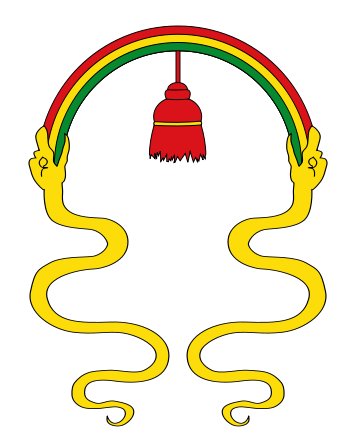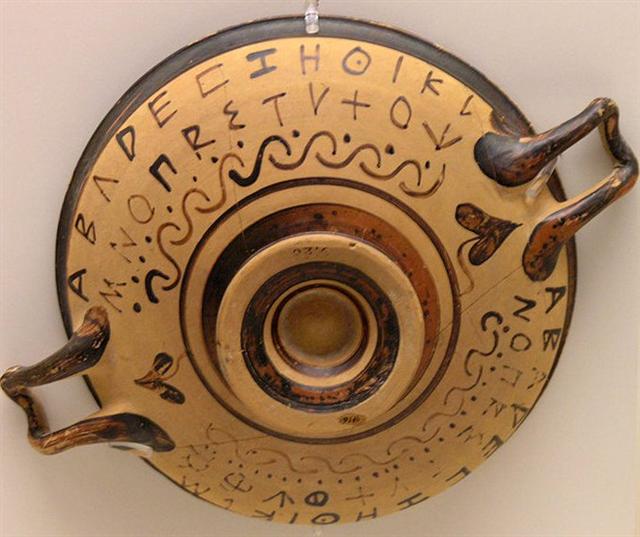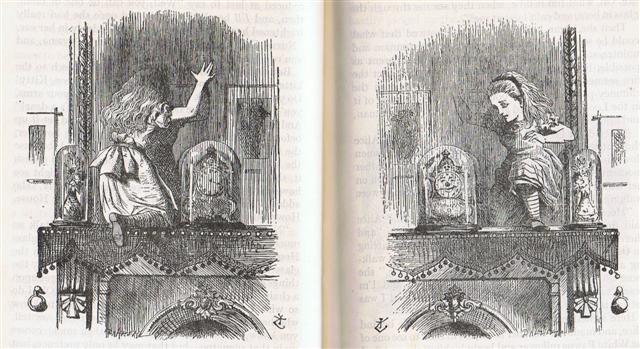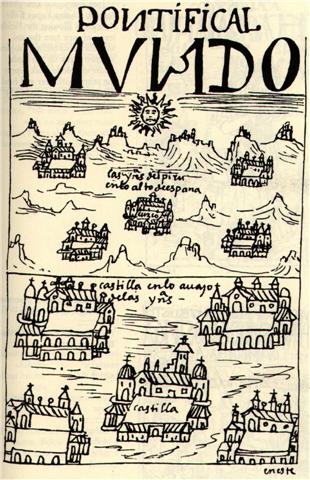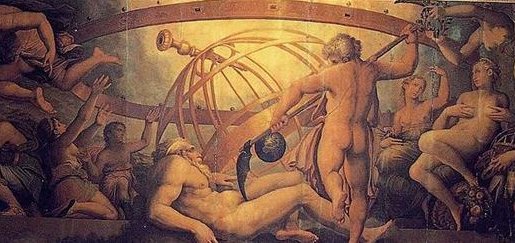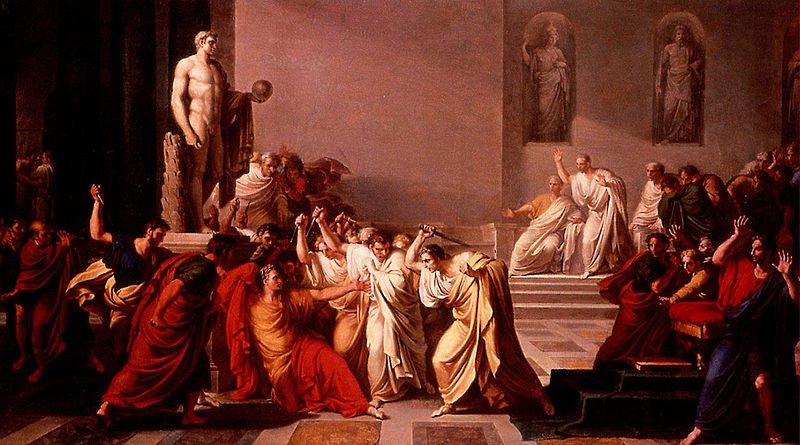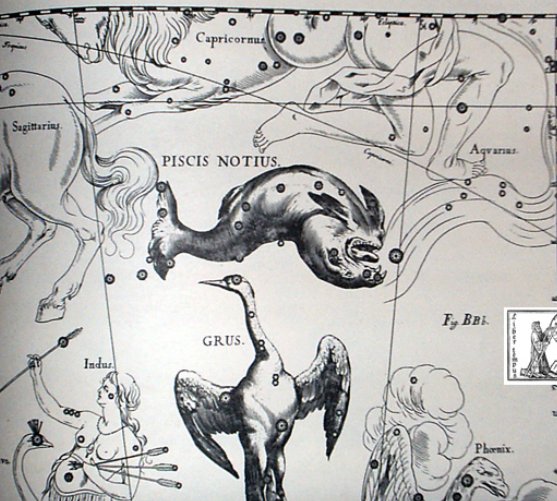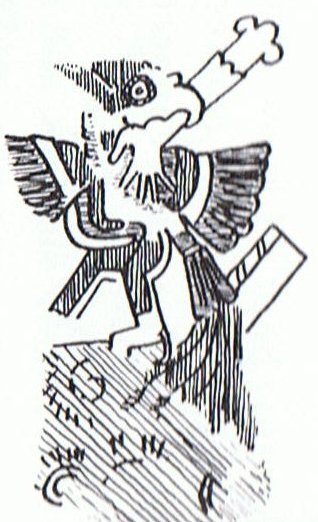|
RIGEL
There was a grasping (left) hand at the horizon in the west - consuming the Sun, seizing it in its Mouth:
But, there was a similar hand also at the horizon in the east, because the Moon went withershins:
The letter Kaph (kappa), 7 + 4 (→ death) = 11 (→ one more), was next to the letter for the Whip (lambda, lamedh), as if they had been twins:
... The first half beginning with Alef - an ox, and ending with Lamed - a whip. The second list begins with Mem - water, and continues with Nun - fish, Samek - fish bones, Ayin - a water spring, Peh - the mouth of a well, Tsadi - to fish, Kof, Resh and Shin are the hook hole, hook head and hook teeth, known to exist from prehistoric times, and the Tav is the mark used to count the fish caught ...... One of them was seized by a fish, and never seen again. The other was taken round and round to the very lowest center of the whirlpool, when another circle caught him and bore him outward ...
... One of them was seized by a fish, and never seen again. The other was taken round and round to the very lowest center of the whirlpool, when another circle caught him and bore him outward ...
Caesar had a deputy, his 'tanist', in form of Marcus Anthonius. ... Freeman describres the dualistic cosmology of the Pythagorean school (-5th century), embodied in a table of ten pairs of opposites. On one side there was the limited, the odd, the one, the right, the male, the good, motion, light, square and straight. On the other side there was the unlimited, the even, the many, the left, the female, the bad, rest, darkness, oblong and curved ... ... This Hercules is male leader of all orgiastic rites and has twelve archer companions, including his spear-armed twin, who is his tanist or deputy. He performs an annual green-wood marriage with a queen of the woods, a sort of Maid Marian. He is a mighty hunter and makes rain, when it is needed, by rattling an oak-club thunderously in a hollow oak and stirring a pool with an oak branch - alternatively, by rattling pebbles inside a sacred colocinth-gourd or, later, by rolling black meteoric stones inside a wooden chest - and so attracting thunderstorms by sympathetic magic ... ... Gronw Pebyr, who figures as the lord of Penllyn - 'Lord of the Lake' - which was also the title of Tegid Voel, Cerridwen's husband, is really Llew's twin and tanist ... Gronw reigns during the second half of the year, after Llew's sacrificial murder; and the weary stag whom he kills and flays outside Llew's castle stands for Llew himself (a 'stag of seven fights'). This constant shift in symbolic values makes the allegory difficult for the prose-minded reader to follow, but to the poet who remembers the fate of the pastoral Hercules the sense is clear: after despatching Llew with the dart hurled at him from Bryn Kyvergyr, Gronw flays him, cuts him to pieces and distributes the pieces among his merry-men. The clue is given in the phrase 'baiting his dogs'. ... Beta Virginis (β Vir, β Virginis) is a star in the constellation Virgo. It has the traditional names Zavijava (also Zavijah) and Alaraph. Despite being the beta star of the constellation Virgo it is only the fifth star in order of brightness ... Since it is close to the ecliptic, it can be occulted by the Moon and (very rarely) by planets. The next planetary occultation of Zavijava will take place on 11 August 2069, by Venus ... This was the star Einstein used during the solar eclipse of September 21, 1922, to determine the speed of light in space, as it was close to the Sun ... The medieval name Zavijava (Zavijah, Zavyava, Zawijah) is from the Arabic zāwiyat al-cawwaí 'Corner of the barking (dog)'. Another name was Alaraph ... Math had similarly made a stag of his rival Gilvaethwy, earlier in the story. It seems likely that Llew's mediaeval successor, Red Robin Hood, was also once worshipped as a stag. His presence at the Abbot's Bromley Horn Dance would be difficult to account for otherwise, and stag's horn moss is sometimes called Robin Hood's Hatband. In May, the stag puts on his red summer coat. Llew visits the Castle of Arianrhod in a coracle of weed and sedge. The coracle is the same old harvest basket in which nearly every antique Sun-god makes his New Year voyage; and the virgin princess, his mother, is always waiting to greet him on the bank ...
... The divine names Bran, Saturn, Cronos ... are applied to the ghost of Hercules that floats off in the alder-wood boat after his midsummer sacrifice. His tanist, or other self, appearing in Greek legend as Poeas who lighted Hercules' pyre and inherited his arrows, succeeds him for the second half of the year; having acquired royal virtue by marriage with the queen, the representative of the White Goddess, and by eating some royal part of the dead man's body - heart, shoulder or thigh-flesh. He is in turn succeeded by the New Year Hercules, a reincarnation of the murdered man, who beheads him and, apparently, eats his head. This alternate eucharistic sacrifice made royalty continous, each king in turn the Sun-god beloved of the reigning Moon-goddess. But when these cannibalistic rites were abandoned and the system was gradually modified until a single king reigned for a term of years, Saturn-Cronos-Bran became a mere Old Year ghost, permanently overthrown by Juppiter-Zeus-Belin though yearly conjured up for placation at the Saturnalia or Yule feast ...
... That Cronos the emasculator was deposed by his son Zeus is an economical statement: the Achaean herdsmen who on their arrival in Northern Greece had identified their Sky-god with the local oak-hero gained ascendancy over the Pelasgian agriculturalists. But there was a compromise between the two cults. DionŽ, or Diana, of the woodland was identified with DanaŽ of the barley; and that an inconvenient golden sickle, not a bill-hook of flint or obsidian, was later used by the Gallic Druids for lopping the mistletoe, proves that the oak-ritual had been combined with that of the barley-king whom the Goddess DanaŽ, or Alphito, or Demeter, or Ceres, reaped with her moon-shaped sickle. Reaping meant castration; similarly, the Galla warriors of Abyssinia carry a miniature sickle into battle for castrating their enemies ...
... The brutes of spring caused the downfall of both Captain Cook and Julius Caesar. We are close to the key myth of mankind, that which explains the regeneration of sun and of growth. Once at least some people kept the tradition living. I became interested in what really happened at March 15 and reopened Henrikson to find out: Caesar had been forewarned of the threat by the prophet Spurinna, who told him that a great threat was coming at Idus Martiae or just before [i.e. at 3-14]. The day arrived and Caesar was still living, walking to his meeting with the Senate when he happened to encounter Spurinna and told him jokingly that he was still alive. Spurinna calmely answered that the day had yet not ended ...
... The origin of the vision by Spurinna, that Julius Ceasar was doomed to die before the summer year arrived, presumably at the end of the old year, may have been based on his birth month July (Tammuz) ... ... The chaotic tumult in the Curia (where the Senate had their meeting and where they killed Caesar) resulted in his dead body being left lying on the floor, while all the Senators panicked and ran out through the doors in different directions. They had planned to throw his body into the river, but the time of plans and order was in the past. Instead, in the afternoon, three of the slaves of Caesar came and fetched his body, and carried him on a stretcher to his home south of Forum - and one arm was hanging down in the corner where the 4th slave should have been ...
|
|||||||||||||||||||||||||||||||||||||||||||||||||||||||||||


